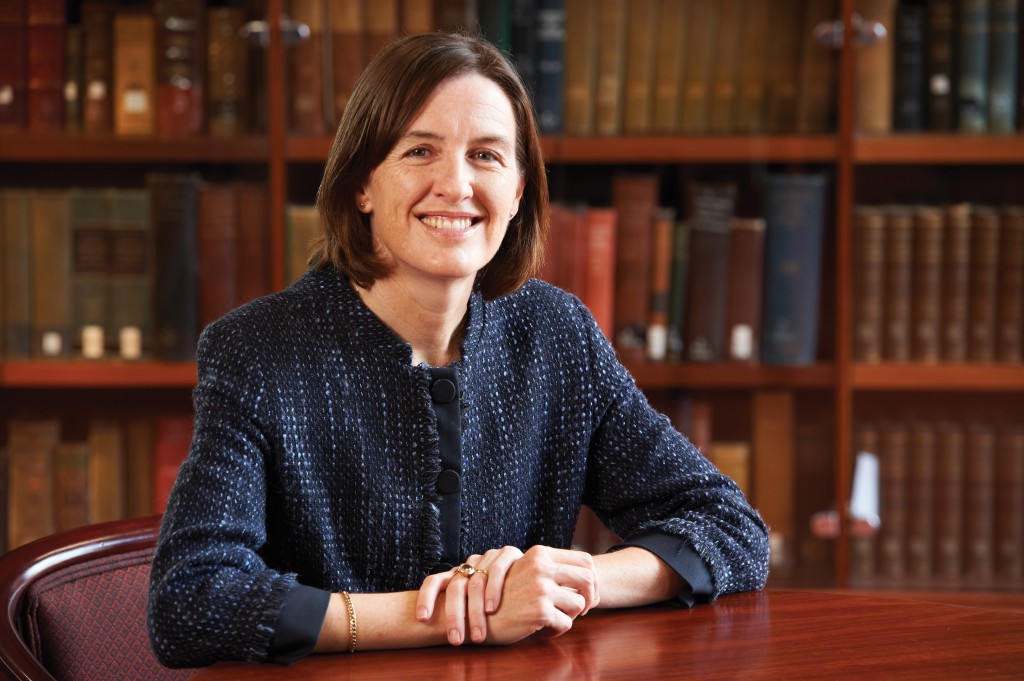
The Federal Government released its first budget last week, which included extensive changes to Higher Education (HE) funding. What do the changes mean for the University of Notre Dame Australia? The Record spoke to its Vice Chancellor Professor Celia Hammond to find out.
Is this a good budget for UNDA?
On balance, the changes to the HE system are supported by Notre Dame.
In an ideal world, we would have liked the Government to increase the amount it spends in HE, not reduce it – and we would have preferred that the loan indexation rate was not increased.
However, the opening up of Commonwealth supported places should see greater choice for students.
What changes are you enthusiastic about? What changes are you worried about?
We are enthusiastic and supportive of the opening up of Commonwealth supported subsidies beyond the Table A/Public Universities.
We believe this will increase competition, increase choice and increase quality, all of which are great for students.
We are concerned about the linking of student debt to a higher rate of annual indexation – even if fees don’t rise dramatically, all students will be paying back more over the course of their loan.
While we agree that HE graduates do receive a ‘personal benefit’ from their studies, society in general also benefits – and we remain cautious lest the ‘balance’ between the two becomes such that it dissuades ‘debt adverse’ people from studying.
What will change at UNDA in the light of these changes?
At present, only 50 per cent of our undergraduate students received Commonwealth supported places.
From 2016, all new undergraduate students in all our disciplines will be eligible. This is enormously significant for us – and will open up real choice.
What will the Government’s increase in scholarships mean for UNDA, particularly in light of UNDA’s Catholic ethos?
The Government hasn’t increased scholarships – it is requiring universities to use $1 in each $5 they receive from student fees to instigate their own equity and access programs, for example, scholarships, bursaries, support and outreach.
Notre Dame already does a significant amount in this area – and we strongly support both the principle and the fact that universities – rather than Government – will decide how and what to do.
Do you welcome full fee deregulation? Why or why not?
We are generally supportive of fee deregulation – although this of course is based on the cautious belief that all universities will remember the ‘social good’ purpose and role for which they are established in setting fees (and providing other means of access for students who come from disadvantaged circumstances).
Do you anticipate fees at UNDA will increase?
Given that the Government will be reducing the Government subsidy, we anticipate fees at all universities will increase in 2016.
At Notre Dame, in setting our fees, we will continue to balance a variety of factors, including:
a) Cost of delivery of a course.
b) Impact of fees on students – both new and in the future.
c) The nature of the course and its significance to our Objects and Mission.
We do not anticipate a blanket across the board percentage change for all degrees. We will take a balanced approach – taking into account all relevant factors.
How will UNDA’s Catholic ethos affect how these changes are implemented at the university?
As always, our Catholic ethos will remain core to all decisions we will make: whether it be the courses we offer, the extensive pastoral support we offer or the fees we charge.
Key to us is that we are not being asked or required to change our Mission or purpose to receive Government support. This is a very significant policy decision.